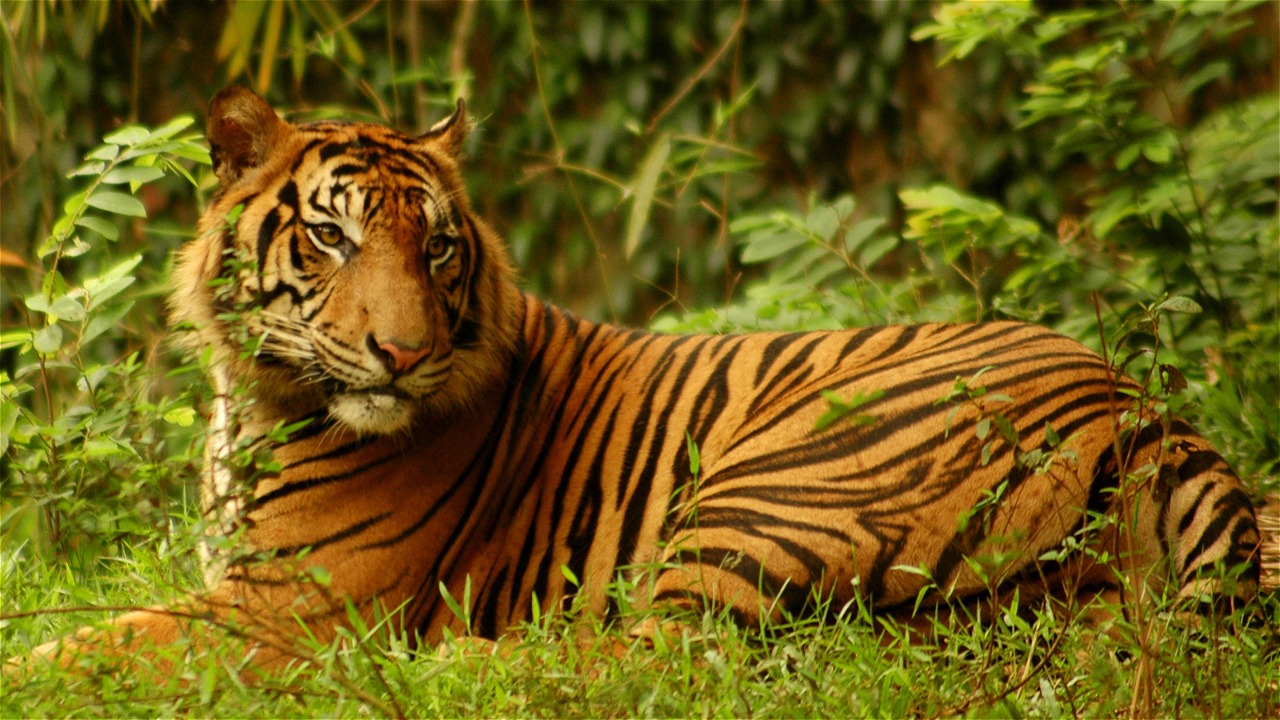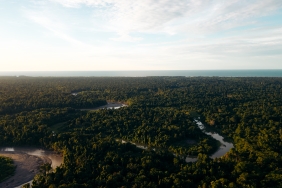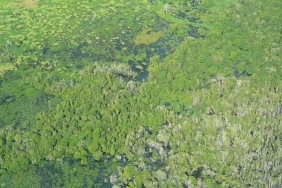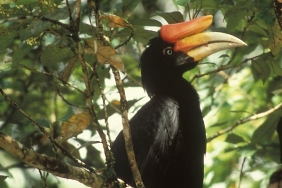VISITED THE SUMATRAN TIGER GUARD STOPOVER AT THE RIVER CAMP BUT
By: Natalia Trita Agnika
When the plane was about to land in Pekanbaru, a green expanse of land was ready to welcome. But when the iron bird got closer to land, the green expanse that I thought was a forest turned out to be an expanse of palm oil. Yes, as far as the eye can see what appears to be an oil palm plantation.
My trip to Pekanbaru at that time (08/11) was in order to accompany the 360 Metro TV crew who would be shooting about Sumatran tiger conservation in the Rimbang Baling area, Riau. Our first destination was Camp Sungai Tapi, a camp owned by WWF-Indonesia that is dedicated to the Tiger Protection Unit. The journey to this camp took about 5 hours from Pekanbaru. We took a 4WD car (a car with propulsion on all four wheels -Red).
[Watch video: 360 "The Tragic Fate of Tigers"]
As I neared the camp, I knew the reason for the vehicle. Rocky dirt roads greeted our convoy of vehicles. Alternately, palm oil plantations, rubber plantations and natural forests greeted us. It was getting late by the time we passed through. We felt the jolts many times. The dark road conditions were a challenge for the driver. We also had to cross two rivers, which can be crossed at low tide. The mud on the banks of the river had made the car skid and difficult to drive. Luckily, Mr. Erizal, who is familiarly called Ajo, was able to free the car from the puddle. These are the challenges that the Tiger Protection Unit (TPU) team always faces when heading to Sungai Tapi Camp.
Camp Sungai Tapi
In the darkness of the night, we finally arrived at Camp Sungai Tapi, which is located far from settlements and in the middle of the forest. There are wooden huts that serve as sleeping rooms, meeting rooms, dining rooms, and kitchens. The camp, which is located on the edge of Petai Village, Sei Tapi District, Kuantan Singingi Regency, was built in 2012 with only one building at first, then slowly increased with the self-help of TPU members.
Camp Sungai Tapi was established on a land grant from H. Badu Ramin, a community leader of Petai Village. He donated his land so that the forest in his area would be preserved and so that tigers, the most revered animal in the area, would not be killed and should be protected. This camp is also a stopover for the TPU team after carrying out the task of protecting the Rimbang Baling Wildlife Sanctuary.
There are several activities of the TPU Team related to Sumatran tiger conservation, namely patrols, investigations, and awareness. The 16-member TPU team consists of two teams for foot patrol activities, each team consisting of four members (three TPU and one forest ranger). The motorized patrol team consists of two people. Likewise, the awareness team and the investigation team each consist of two people.
The patrol team walks through the area to detect threats to the preservation of Sumatran tigers in areas that cannot be passed by vehicles. Meanwhile, the vehicle patrol team (motorcycle or car) is tasked with detecting threats quickly in areas that can be passed by vehicles. Snares found by the patrol team will be investigated by the investigation team to find out who set the snares. Once the perpetrator is known, the team will report it to BBKSDA.
In the past, when a snare was found, it would be confiscated. "But then we thought that if it continued like that, there would be no improvement. Then I came up with the idea of how to make the hunters themselves aware, namely by making awareness through a personal approach. Alhamdulillah, with that method, for now he is no longer hunting. Hopefully it will continue like that in the future," explained Jon Hendra, Coordinator of the Tiger Protection Unit.
In carrying out their duties, the TPU team can enter the forest for up to five days on fast activities (short tracks) and for 10-15 days on long track activities. Not only a place to stop, Camp Sungai Tapi is also a place to discuss various work plans.
It is hoped that the existence of this camp can also later become a place to facilitate research for students and students. The camp can also be used to get to know, learn and understand nature more closely. Indeed, being in this "paradise" will make us closer to nature, as I felt at that time.
During my stay at Camp Sungai Tapi, I was able to see the various biodiversity that exists there. One morning when I was waiting for a time lapse shot, the strong sound of flapping wings startled me. When I looked up, I saw that a rhinoceros hornbill was flying from one tree to another, possibly its nest. It was followed by another hornbill. Perhaps they were a couple. The beautiful and rare sight was accompanied by the melodious sound of nature's "song". The sound of kuow was accompanied by gibbons, monkeys and macaques. On another occasion, I saw a low-flying snake eagle circling, two large black beetles dancing, and a dragonfly with maroon wings.
Hopefully, with the existence of the Camp Tiger Protection Unit, Sumatran tigers in this area will remain protected so that the existence of other animals is also preserved. We can also help preserve the tiger by becoming a "Tiger Warrior".





